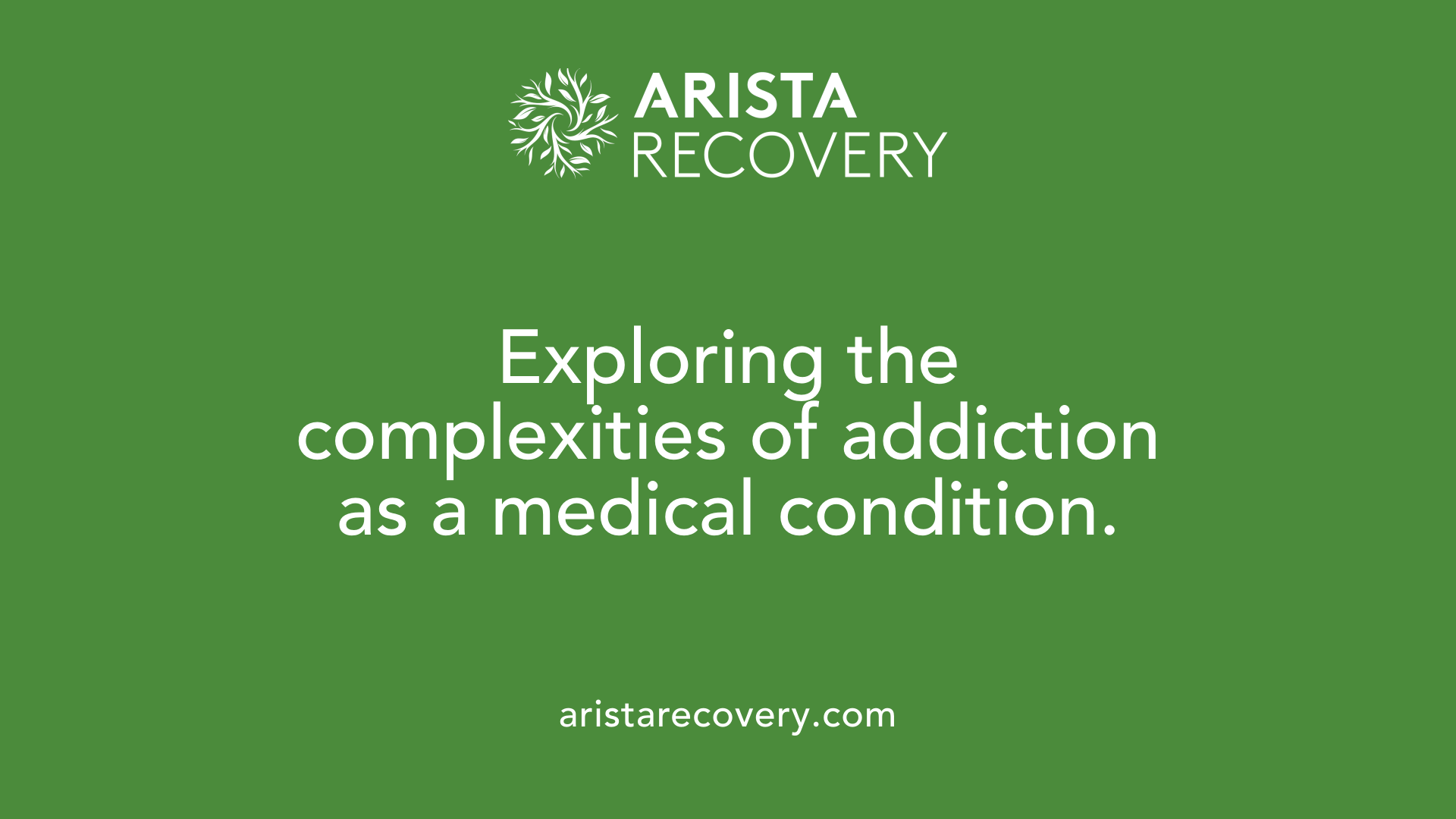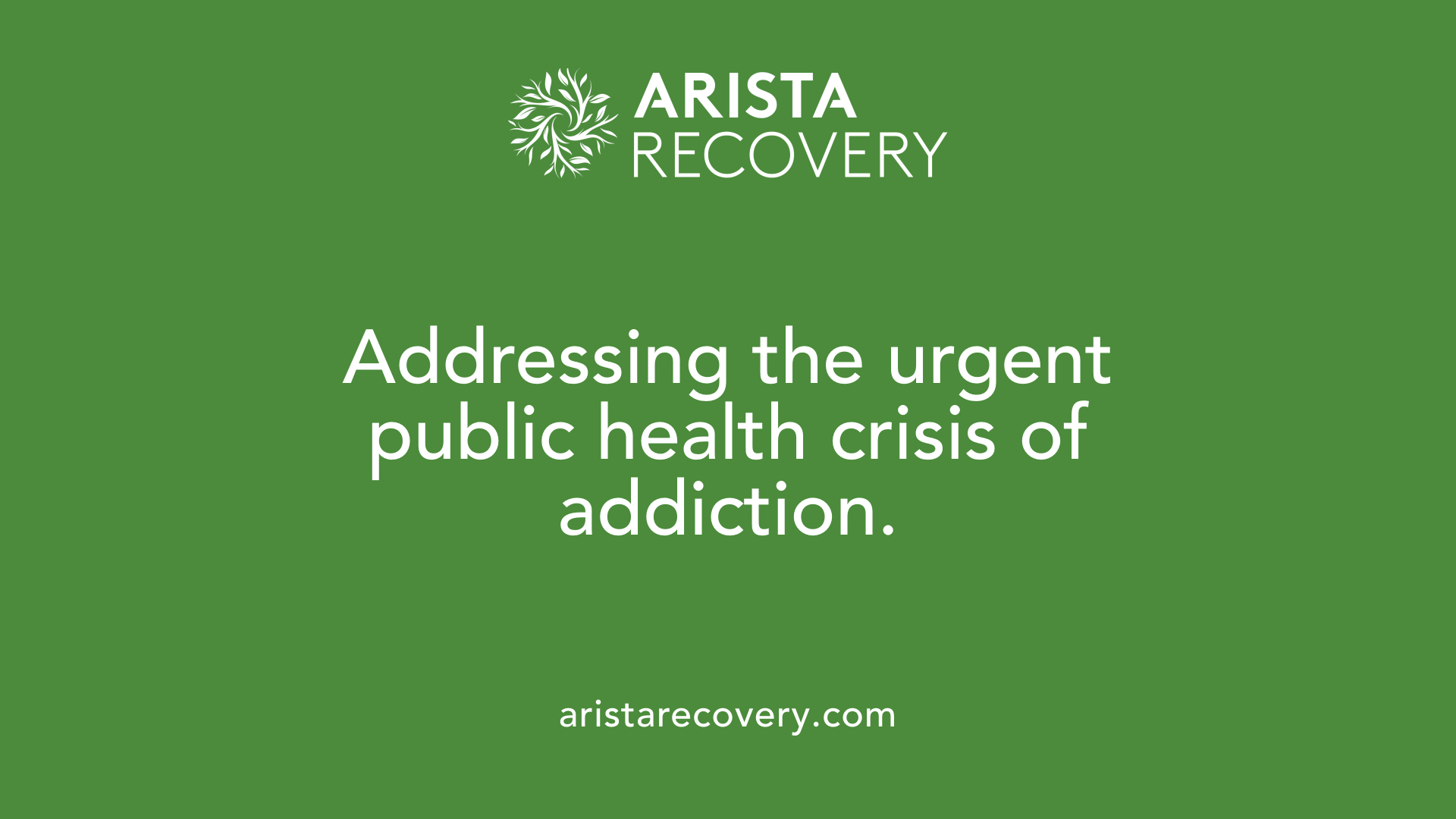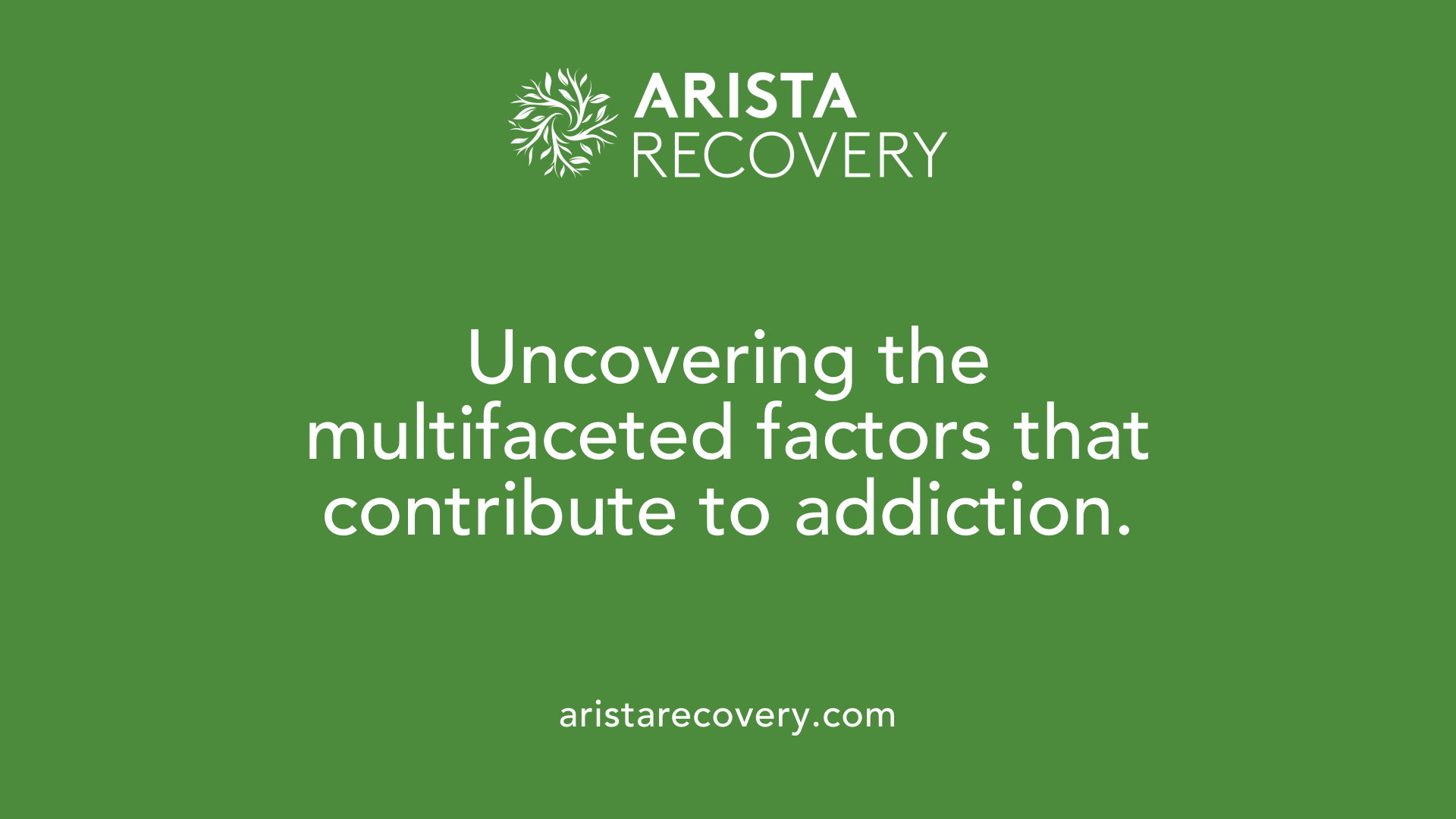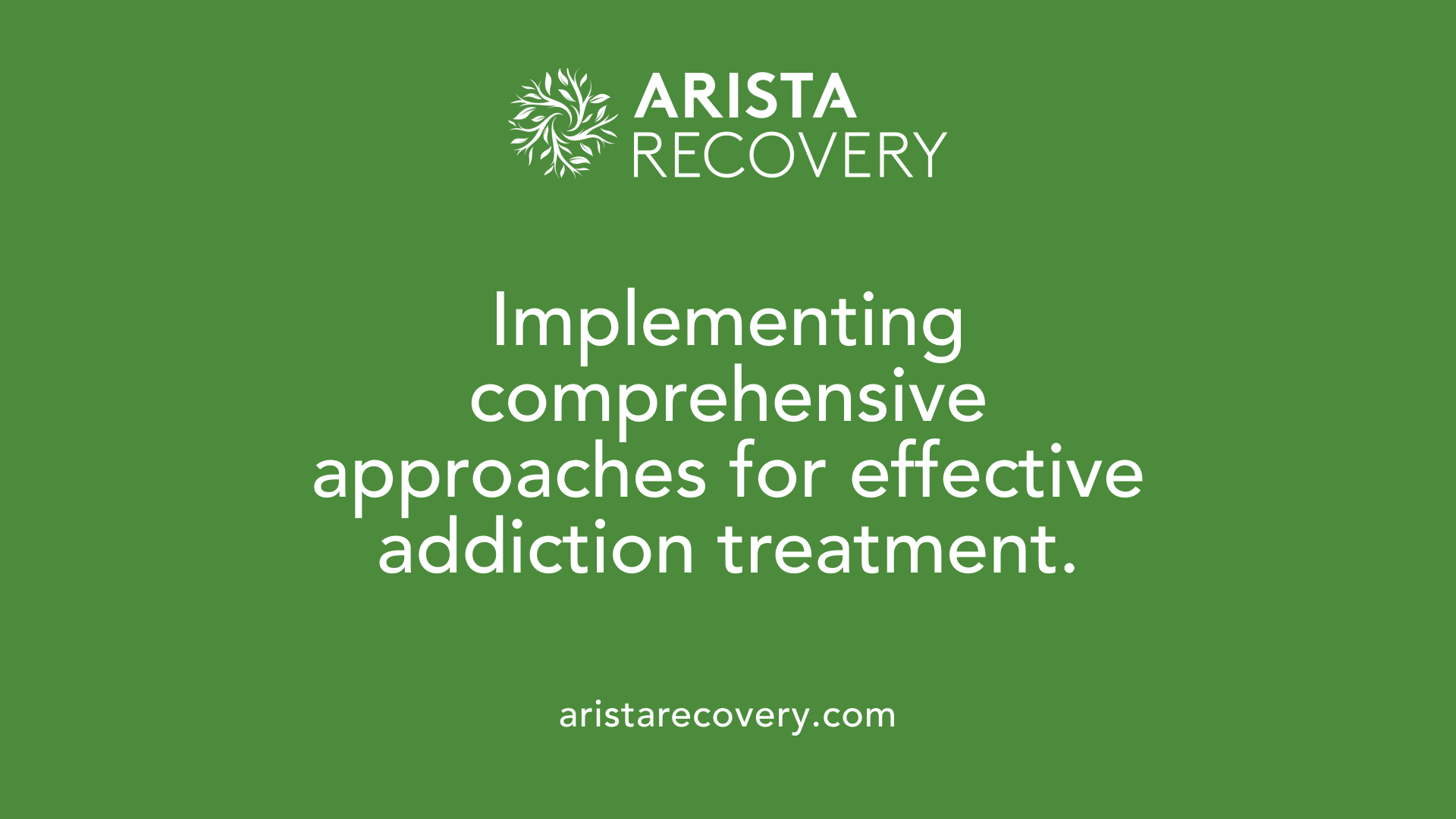The Importance of Addressing Underlying Causes of Addiction

Introduction: The Multifaceted Nature of Addiction
Addiction remains a perplexing and multifaceted condition that continues to impact millions of lives globally. Despite extensive research and evolving therapies, understanding and addressing the underlying causes remains a crucial pathway to recovery. These causes encompass a broad array of factors—biological, psychological, genetic, and social—that interplay in complex ways to foster this chronic disease. By exploring these components, we gain insights into more effective and compassionate treatment approaches.
Understanding Addiction: A Complex Response

What is addiction in simple words?
Addiction is a chronic condition where a person finds it hard to control their desire to use a substance or engage in a behavior, even when it leads to negative consequences. It can involve substances like drugs and alcohol or behaviors such as gambling and internet use. Addiction is recognized as a medical issue that affects the brain and is not just a matter of willpower.
People with addiction often continue their harmful habits despite knowing the risks, indicating a lack of control. Importantly, addiction is treatable, similar to other chronic diseases, and understanding it can help reduce the stigma around it.
Biological and psychological aspects of addiction
Addiction is characterized by significant changes in brain chemistry, particularly affecting the reward circuitry that produces feelings of pleasure. Substances often flood the brain with dopamine, reinforcing the behavior of seeking drugs. Over time, this can lead to increased tolerance, compelling individuals to consume higher doses to achieve the same effect.
Psychologically, addiction is often intertwined with mental health issues. Many individuals turn to substances as a form of self-medication for anxiety, depression, or trauma. This interplay complicates both the manifestation of addiction and the recovery process, requiring integrated treatment approaches that address both addiction and mental health simultaneously.
The role of control in addiction
Control plays a significant role in understanding addiction. It is often characterized as a loss of control over substance use and behaviors, which challenges an individual's ability to make informed decisions about their health. Relapse is common because of the persistent brain changes that make resisting urges difficult. Treating addiction thus requires ongoing support and comprehensive strategies that not only target substance use but also fortify an individual’s ability to regain control over their life.
The Critical Need to Tackle Addiction

Impact of addiction on health and society
Addiction is not just an individual struggle; it has far-reaching consequences for society. It is a chronic disease that affects millions, leading to serious health issues and even preventable deaths. The statistics are staggering: over 800,000 drug overdose deaths in the U.S. between 1999 and 2020 highlight the urgency of addressing this public health crisis.
Moreover, the implications extend beyond personal health. Addiction can strain relationships, lead to employment instability, and create substantial legal issues. The economic burden on healthcare systems stems from both the direct costs of treatment and the indirect costs of lost productivity and legal expenses.
Benefits of addressing addiction early
Recognizing and tackling addiction early can lead to transformative benefits. Early intervention not only minimizes the risk of severe health complications but also fosters better life outcomes. Treatment programs that integrate both psychological and physical support have shown promise, significantly reducing substance use and improving overall functioning.
Addressing addiction is crucial because it paves the way for recovery and rehabilitation. Comprehensive treatment strategies, including medication-assisted therapies and counseling, can provide individuals with the tools needed to overcome this disease.
By actively focusing on addiction prevention and intervention, society can enhance quality of life for those impacted and mitigate the broader societal repercussions of this complex condition.
Exploring the Origins of Addiction

What factors influence addiction?
Addiction is influenced by a mixture of biological, psychological, genetic, and social factors. These elements converge uniquely for each individual, highlighting the complexity of substance use disorders (SUDs).
What is the clinical importance of understanding the origin of addiction?
Understanding the origin of addiction is clinically important as it encompasses the interplay of these diverse factors. Recognizing addiction as a disease, established by the AMA in 1987, fosters a compassionate approach to treatment, reducing stigma. This dynamic is vital for healthcare professionals, especially nurses, since SUDs can manifest through behavioral changes that impact patient safety.
By identifying addiction's complexity, providers can improve care outcomes, supporting patients’ mental and emotional wellbeing effectively. Awareness and early intervention are key to creating a safer, more supportive environment for both patients and healthcare practitioners.
Stages of Addiction and Recovery

Stages of Addiction
Understanding the stages of addiction is crucial in navigating the path to recovery. The journey typically unfolds through several informed phases:
Process and Importance of Recovery Stages
It is essential to recognize these stages as they represent vital steps toward personal healing. Understanding the process fosters a greater awareness of one's journey, encouraging individuals to seek help when needed. Each stage forms a building block towards long-term recovery, which is not just about abstaining from substances but also about rebuilding one’s life.
Triggers and Coping Strategies
Identifying triggers is another critical aspect of recovery. Triggers can include:
Coping strategies play a crucial role in preparing for these challenges. Techniques such as engaging in healthy activities, practicing mindfulness, and developing strong support systems are all beneficial approaches. By acknowledging the importance of these stages, individuals can foster resilience and lead fulfilling lives beyond addiction.
Holistic Treatment: Addressing Underlying Causes

Holistic approaches to treating addiction
Treating addiction effectively necessitates a holistic approach that considers the unique blend of biological, psychological, and social factors contributing to each individual's condition. This comprehensive view helps to identify the root causes that may include trauma, mental health disorders, or genetic predispositions. Such strategies often involve a combination of therapies designed to rehabilitate not merely the addiction but also the person as a whole.
The role of mental health and trauma in recovery
Mental health conditions frequently co-occur with addiction, with research indicating that approximately 50% of individuals suffering from mental illnesses will also develop substance use disorders. Trauma, particularly childhood experiences such as abuse or neglect, can profoundly influence one’s susceptibility to addiction. Using cognitive therapy and trauma-informed care can help patients uncover and address these early harmful experiences, enabling them to develop healthier coping mechanisms.
Importance of tailored treatment strategies
Individualized treatment strategies are vital for successful recovery. Programs that incorporate medication-assisted treatment alongside psychotherapy, outpatient support, and community resources can significantly enhance outcomes. By focusing on personalized care plans that reflect an individual’s unique challenges and experiences, practitioners can facilitate meaningful recovery that addresses the nuances of addiction and promotes long-term wellness.
This multifaceted approach not only encourages recovery but also aims to empower individuals to reclaim their lives from the grasp of addiction.
Deconstructing Stigma: A Key to Combating Addiction
The Role of Stigma in Addiction Treatment
Stigma plays a significant role in how addiction is perceived and treated. Many view addiction as a moral failing rather than a chronic brain disease, leading to discrimination and marginalization of those suffering from substance use disorders. This societal attitude can deter individuals from seeking help, fearing judgment or ostracization.
Language's Impact on Stigma and Recovery
The terms we use to describe addiction have a profound impact on recovery. Utilizing person-first language, such as referring to individuals as "persons with substance use disorders," emphasizes their humanity rather than defining them by their addiction. This approach fosters dignity and respect, reducing stigma and encouraging individuals to seek recovery.
Efforts to Reduce Stigma in Society
Addressing the addiction epidemic and reducing stigma requires a multifaceted approach. Education on the biological and chronic nature of addiction can help dispel myths surrounding it. Initiatives like the Johns Hopkins Words Matter Pledge aim to encourage compassionate communication. Moreover, increasing access to effective treatments, including medication-assisted therapies, is crucial, as stigma often prevents individuals from seeking the help they require.
Beyond Symptoms: Factors Influencing Addiction
Genetic Predispositions
Genetics play a crucial role in the likelihood of developing addiction. Research suggests that individuals with a family history of substance use disorders are eight times more likely to face similar issues themselves. Genetic factors account for around 40% to 60% of addiction risk, highlighting the need to consider family medical histories during assessments.
Impact of Childhood Trauma and Environment
Environmental and childhood factors are significant contributors to addiction. Adverse experiences, such as abuse or neglect, can lead to lifelong mental health challenges, pushing individuals toward substance use as a coping mechanism. Studies indicate that about 59% of youths with PTSD resulting from trauma may develop substance abuse disorders. Moreover, environments normalizing drug use further increase addiction risks.
Role of Personality Traits in Addiction Risk
Certain personality traits can enhance vulnerability to addiction. Individuals who are adventurous or spontaneous may be more likely to experiment with drugs. Low self-esteem may also drive individuals to use substances to boost their confidence in social situations, sometimes leading to compulsive behaviors and chronic addiction.
Conclusion: Towards Effective Solutions
To effectively combat the pervasive issue of addiction, understanding its underlying causes is paramount. Acknowledging the intricate web of biological, psychological, genetic, and environmental factors that contribute to the development of addiction opens pathways to more comprehensive and personalized treatment solutions. Moving beyond stigma, employing holistic treatment models, and understanding individual recovery journeys can all contribute to more effective interventions and recovery outcomes. By embracing a compassionate and informed approach, we can better support individuals in breaking free from the chains of addiction and lead them towards a healthier and more fulfilling life.
References
- The Surprising Underlying Causes of Addiction
- Understanding Drug Use and Addiction DrugFacts
- Addiction: What It Is, Causes, Symptoms, Types & Treatment
- Understanding the Underlying Causes of Addiction - Latif Ziyar, MD
- The Root Cause of Addiction: How to Identify It
- Addressing the Underlying Causes of Addiction
- Addiction and Moralization: the Role of the Underlying Model of ...
When mental health challenges and addiction intersect, it can feel isolating. At Arista, we offer compassionate, evidence-based, and trauma-informed care to help you heal, grow, and move forward.
You’re not alone in this.
When mental health challenges and addiction intersect, it can feel isolating. At Arista, we offer compassionate, evidence-based, and trauma-informed care to help you heal, grow, and move forward.
Support that moves with you.
You’ve taken a brave first step. At Arista Recovery, we’re here to help you continue with best-in-class care designed for long-term healing and support.
.webp)






